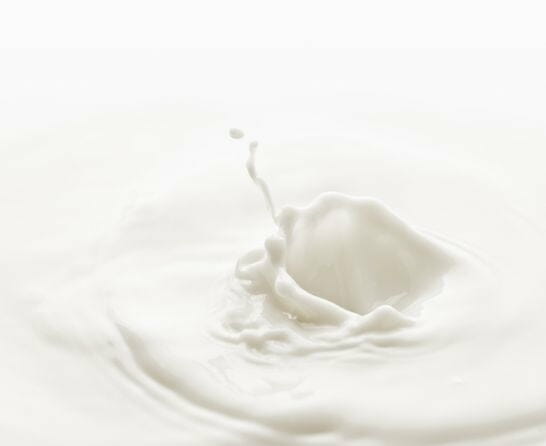Home > Hormones > Hormone health & solutions > Serotonin and Melatonin: Foods good for your hormones


Now, as you probably know, Serotonin and Melatonin are two hormones that mean serious emotional business. But what if we told you they also have a sidekick, a little something called Tryptophan? Today we’re talking about Tryptophan’s connection to Serotonin and Melatonin, as well as which foods are good for boosting this pair of hormones.
Tryptophan is an essential amino acid that your body needs to create and retain protein, muscle, and enzymes. But that’s not all. Because it also helps to balance your nitrogen levels and produces a little molecule called 5-hydroxytryptophan, which, for obvious reasons, we’ll henceforth refer to as 5-HTP.
Firstly, let’s get the basics done and dusted. Serotonin is in charge of sending messages from your brain to your body. And it’s largely responsible for your mood, including anxiety and depression. Melatonin, though, has a slightly different, but equally important job. It supervises the regulation of your sleep-wake cycle, which impacts your body’s ability to metabolize nutrients, manage your immune system, and control your appetite.
But how are Serotonin and Melatonin connected to Tryptophan? Well, once Tryptophan has been produced, your body uses it to make that 5-HTP molecule. That 5-HTP is then used to make Serotonin. And once you’ve got Serotonin, it can then be converted into Melatonin. With us so far?
Basically, increasing your levels of Tryptophan encourages the production of 5-HTP, in turn increasing your Serotonin and Melatonin levels. Think of the process as a Tryptophan train that fuels high spirits and sleep optimization. And who doesn’t want to ride that train?
How can I jump on the Tryptophan train we hear you ask? Well, because it is an essential amino acid your body can’t produce it alone, so your diet is a great place to start. Luckily, there are plenty of good foods that are pretty nifty at boosting these hormones.
One study published in The National Library of Medicine found that eating Tryptophan-enriched cereal in the morning and evening enabled people to fall asleep more quickly and for longer. It also alleviated symptoms of anxiety and depression. But don’t worry, we’re not telling you to eat cereal for dinner. Unless you want to.
Many high-protein foods contain Tryptophan. Some great options are:
But what if you’re worried that you can’t consume enough tryptophan because of dietary restrictions? Well, there’s always the option of supplementing 5-HTP. As always, however, please consult a medical professional before embarking on a supplement journey.
Sadly, though, Tryptophan alone isn’t going to cut it. To encourage your Tryptophan train to get moving, you need to be on top of your intake of foods rich in Vitamins B2, and B6. It’s also a good idea to keep your Iron levels in check. Because, if you make your body a Tryptophan-friendly zone, you’ll maximize the benefits of Serotonin and Melatonin.
So, get out there and bask in the glory of Tryptophan. You can thank us later!
Disclaimer: This website does not provide medical advice. The information, including but not limited to, text, graphics, images and other material contained on this website are for informational purposes only. No material on this site is intended to be a substitute for professional medical advice, diagnosis, or treatment. Always seek the advice of your physician or other qualified healthcare provider with any questions you may have regarding
a medical condition or treatment, and before undertaking a new health care regimen, and never disregard professional medical advice or delay in seeking it because of something you’ve read on this website.

-


Dr Singh is the Medical Director of the Indiana Sleep Center. His research and clinical practice focuses on the myriad of sleep.

Understanding the female libido Before we can answer, “Does progesterone increase sex drive?” it’s important to gain a better understanding of what a “sex drive” means. The female libido or sex drive is how much you desire sexual activity. Every

Why am I so hungry before my period? Women who experience an increased appetite before period starts can feel frustrated that they’re craving foods they don’t normally eat. You may be wondering, “Why do I eat so much before my

Understanding cycle syncing workouts Did you know that evidence shows a link between the impact of exercise and menstrual cycle phases in women? It’s true. Women are at a higher risk of foot and ankle injury during workouts than men,
Hormona© 2025, All Rights Reserved
Privacy Overview
| Cookie | Duration | Description |
|---|---|---|
| cookielawinfo-checkbox-analytics | 11 months | This cookie is set by GDPR Cookie Consent plugin. The cookie is used to store the user consent for the cookies in the category "Analytics". |
| cookielawinfo-checkbox-functional | 11 months | The cookie is set by GDPR cookie consent to record the user consent for the cookies in the category "Functional". |
| cookielawinfo-checkbox-necessary | 11 months | This cookie is set by GDPR Cookie Consent plugin. The cookies is used to store the user consent for the cookies in the category "Necessary". |
| cookielawinfo-checkbox-others | 11 months | This cookie is set by GDPR Cookie Consent plugin. The cookie is used to store the user consent for the cookies in the category "Other. |
| cookielawinfo-checkbox-performance | 11 months | This cookie is set by GDPR Cookie Consent plugin. The cookie is used to store the user consent for the cookies in the category "Performance". |
| viewed_cookie_policy | 11 months | The cookie is set by the GDPR Cookie Consent plugin and is used to store whether or not user has consented to the use of cookies. It does not store any personal data. |
